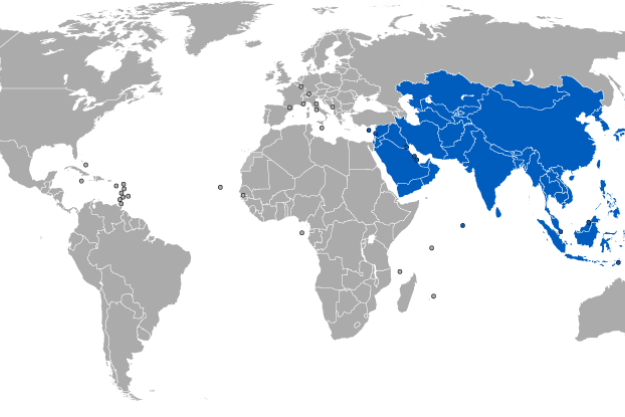
In cooperation with Government of Malaysia, the Organisation for the Prohibition of Chemical Weapons (OPCW) is holding the first Regional Workshop on Assistance and Protection against Chemical Weapons from 16 to 19 May 2005 in Kuala Lumpur, Malaysia.
This workshop brings together representatives of States Parties to the Chemical Weapons Convention (CWC) in Asia and serves as a forum for civil protection officials, to develop and enhance the civilian protection against chemical weapons. The CWC foresees that every one of the 168 OPCW Member States have the right to request assistance and protection from the Organisation should they be threatened with chemical attack, or should such an attack occur.
The workshop provides the participants with information and advice on planning and operating a protection response system, establishing an integrated response system at the national level and developing regional cooperation in assistance and protection as foreseen by the CWC. A regional assistance-and-protection network will also be established at the workshop, which will further the progress made towards regional cooperation among Member States.
The Workshop was declared open by H.E. Tan Sri Ahmad Fuzi Abdul Razak, Secretary General of the Ministry of Foreign Affairs, on behalf of the Malaysian Foreign Minister, H.E. Dato’ Seri Syed Hamid Albar, currently on official travel overseas. The Foreign Minister’s message stressed the need for the complete elimination of all weapons of mass destruction, including chemical weapons. He also underlined the need for effective regional cooperation and capacity-building at the national level.
In his opening statement to the Workshop, the Director-General of the Organisation for the Prohibition of Chemical Weapons (OPCW), Ambassador Rogelio Pfirter, underscored the importance of establishing national protection response systems, which should be bolstered through an effective regional network, in order to adequately address the potential threat posed by the illicit use of chemical as weapons. He noted that this effort is part of the wider effort to prevent the spread of weapons of mass destruction to terrorists and is a priority at both the regional and international level. Ambassador Pfirter also highlighted the fact that assistance and protection is one of the pillars of the Chemical Weapons Convention. He reviewed the status of implementation of the OPCW’s assistance and protection programme, stressing the Organisation’s engagement in a number of protection capacity-building projects for the Asian region, including long-term projects with Member States, including Afghanistan, Azerbaijan, Indonesia, Kazakhstan, Kuwait, Kyrgyzstan, Oman, Qatar, Saudi Arabia, Tajikistan Uzbekistan, as well as the host country of the regional workshop, Malaysia.
Relevant CWC Provisions
Handbook on Chemicals (2005 Draft)
Scheduled chemicals of special interest
Transfer of Scheduled Chemicals
Monitoring Chemicals with Possible Chemical Weapons Applications
Non-Proliferation
Administrative Law
UN-OPCW Relationship Agreement
Legal Publications
Legal Internships
Special Projects
Verification
Under the Chemical Weapons Convention, States Parties cooperate with the Organisation in facilitating the coordination and delivery of assistance and protection, minimising the consequences of a chemical weapons attack. Further, States Parties have the right to request expert advice and assistance in assessing their programmes for the development and improvement of a protective capacity against chemical weapons.
18/2005
